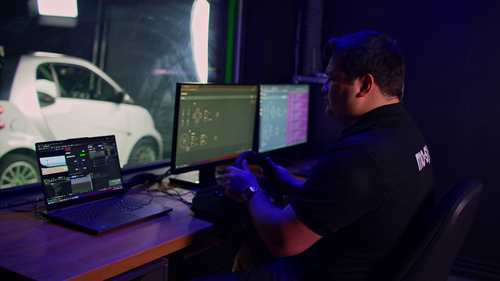TVBEurope: Promoting Remote Production
In the April issue of TVBEurope, eight industry experts gave their views on the benefits, challenges and future of remote production. Founder and CEO of Mo-Sys, Michael Geissler shares his personal insights on remote production and how important it is for the future of broadcast.

Michael Geissler, CEO, Mo-Sys explains:
When you take travel and rest time into consideration, the top operators might only be doing the job at which they excel for maybe 40 days a year. With remote production, those people could be working for maybe 200 days a year. That is not just a massive boost in productivity, it represents a huge reduction in carbon footprint, by eliminating long-distance travel and specialist clothing. Production companies are already talking about saving half a million dollars a year.
The headline benefit is that fewer people need to travel to the event, meaning is a significant reduction in carbon footprint. As remote production becomes ever more sophisticated – with remote camera operation, for example – so the reductions become greater. This does depend upon complex technologies becoming mainstream and commoditised, to simplify the installation and the power consumption of rig and connectivity. The recent coronavirus outbreak is seeing a very large reduction in business travel. The ability to control cameras from a central hub in any place of the world will be extremely attractive to productions, not least because of the reduced environmental impact.
The real issue will be the management of change, particularly for people. It is a different pitch for operators: taking them away from immersion in the action and giving them comfortable, familiar working environments in exchange for greater productivity. The people issues, and the shifts in budgeting, are cultural changes, which always see a natural resistance.




